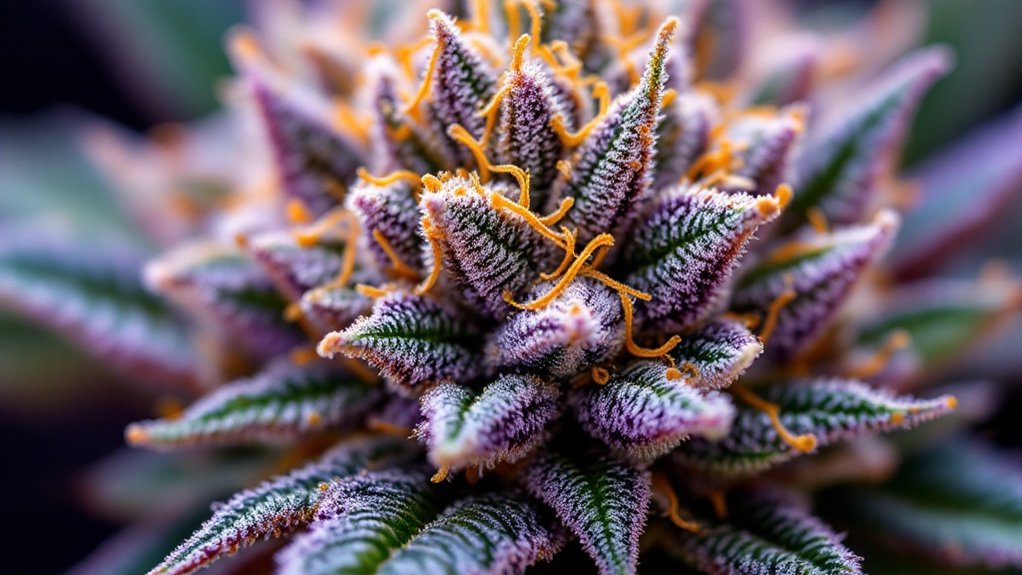Cannabis distribution requires maneuvering a complex regulatory environment where federal prohibition conflicts with state-level legalization. Operators must secure appropriate licensing for cultivation, processing, distribution, and retail operations before commencing business activities. Compliance with state-specific regulations governs everything from facility security to marketing practices, with strict rules against appealing to children or enabling public viewing of products. Understanding these multi-layered requirements forms the foundation for legally viable cannabis distribution operations in today’s evolving marketplace.

While cannabis remains federally illegal, the landscape of dispensation and regulation has evolved extensively across the United States, creating a complex patchwork of state-specific compliance requirements. As of April 2025, numerous states have established regulated markets for both medical and recreational use, though the specific regulations vary considerably.
Texas currently has pending legislation that would legalize cannabis possession and distribution, while Washington DC has mandated that all cannabis establishments must be operational and compliant with district regulations by March 31, 2025. Despite over two-thirds of Americans supporting cannabis legalization, unlicensed operations in DC will face serious consequences after this deadline, including possible search and seizure, closure, or substantial fines.
All cannabis products intended for adult-use or medical purposes must adhere to Good Manufacturing Practice standards. Business operators must secure proper licensing before commencing operations in states with legalized markets. Washington DC’s 2023 legislation has created a pathway for existing “gifting shops” to obtain proper licensure and continue operations legally. Additionally, business formation is a crucial first step in ensuring compliance and protecting personal assets.
Most regulatory frameworks require separate licenses for different aspects of cannabis business operations, including cultivation, processing, distribution, and retail sales. Additionally, licensees typically need explicit approval from state regulatory bodies before implementing delivery services to consumers.
Marketing and advertising regulations impose considerable constraints on cannabis businesses. Missouri’s Division of Cannabis Regulation recently reaffirmed that advertisements must not contain content attractive to children. Certain jurisdictions prohibit the use of terms like “pharmacist,” “pharmacy,” or “apothecary” in business names, though some states permit the use of marijuana leaf imagery in advertisements.
Digital marketing must comply with state-specific guidelines that can vary extensively across jurisdictions. Common violations include using realistic, artistic, or cartoon-like images of animals, fruit, or humans in promotional materials.
Facility security represents another critical regulatory concern. Merchandise, signage, and exhibits must be arranged to prevent public viewing from outside the premises. Sales floors cannot be visible from public spaces, and windows in limited access areas must be secured against intrusion and appropriately covered.
Glass doors and storefronts require security film or shatterproof glass installation. Under specific conditions, some states permit dispensaries to sell or distribute cannabis products to other dispensaries, and transfers between medical, extensive, and microbusiness dispensaries may be allowed in certain jurisdictions.
However, distribution across state lines remains federally illegal regardless of individual state laws.
New York has established an adult-use cannabis market focused on creating economic opportunities through their Office of Cannabis Management which oversees licensing and regulatory compliance for cannabis businesses throughout the state.
Frequently Asked Questions
How Long Does the Cannabis Licensing Process Typically Take?
The cannabis licensing process typically takes 4-6 months from license issuance to business opening.
Regulatory bodies like Massachusetts Cannabis Control Commission issue decisions within 90 days of completed applications.
Pre-application requirements include public comment periods, community outreach meetings, and municipal agreements.
Timeline variations occur based on license type, application volume, regulatory changes, and local approval processes.
Incomplete applications or slow municipal responses often extend this timeline further.
What Fees Are Associated With Obtaining a Cannabis Distribution License?
Cannabis distribution license fees vary by state but typically include nonrefundable application fees ranging from $100 to $7,500.
Upon approval, licensees must pay annual license fees that often scale with business size; California charges between $1,500 and $180,000 based on gross revenue.
Additional financial requirements may include renewal fees, surety bonds, and proof of assets.
Arkansas, for example, requires dispensary applicants to demonstrate $200,000 in assets or secure a surety bond of equivalent value.
Can I Transfer My Cannabis License to Another Person?
Cannabis license transferability varies considerably by state regulations.
Most states require formal applications, specific documentation, and regulatory approval before any transfer can occur. The process typically involves fees, which differ by jurisdiction, and may require the new owner to register with state narcotic control agencies.
Existing license holders remain legally responsible until the transfer is completely approved. Premature transfer attempts can result in license revocation or application denial, making proper compliance with state-specific procedures essential.
Are There Limits to How Much Cannabis I Can Distribute?
Yes, California law imposes strict distribution limits for cannabis.
Licensed distributors can transport only cannabis that has passed testing standards, with retailers limited to selling 1 ounce (28.5 grams) of non-concentrated cannabis or 8 grams of concentrate per person daily.
Medical patients may obtain larger quantities with physician authorization.
Distribution limits vary between adult-use and medical markets, with additional restrictions possibly imposed by local jurisdictions through zoning regulations and buffer requirements.
What Security Measures Are Required for Cannabis Distribution Facilities?
Cannabis distribution facilities require extensive security systems including 24-hour video surveillance with 30-day retention capabilities.
Commercial-grade locks must secure all entry points, with limited-access areas restricted to authorized personnel.
Products must be stored in enclosed indoor locked areas, often requiring high-security safes or DEA-approved cages.
Facilities need alarm systems with continuous monitoring, adequate exterior lighting, and secure transport protocols including locked containers within delivery vehicles.









